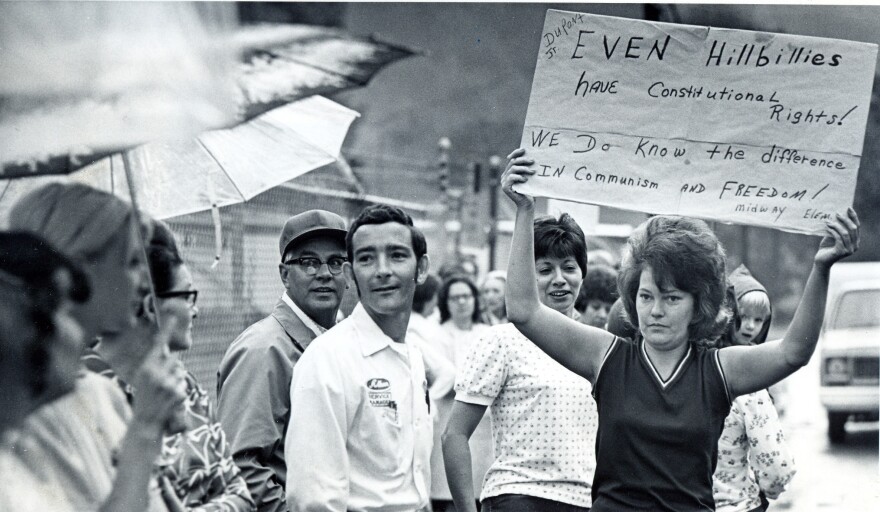On April 11, 1974 — 50 years ago Thursday — a meeting of the Kanawha County Board of Education quickly became mired in controversy.
During the meeting, members of the board adopted a new slate of language arts textbooks, in part to promote multiculturalism in the classroom.
But after reviewing the books that had been approved for the new curriculum, board member Alice Moore and several local residents alleged some of them were antithetical to Christian values.
As proponents of the new curriculum stood firm in the board’s decision, others began to stage protests over the books’ inclusion.
Things escalated in the months following the meeting, and even turned toward violence. Some protesters threw dynamite and Molotov cocktails at local school buildings, and even targeted buses with firearms.
Ultimately, a contingent of residents and board members pushed the curriculum through. But some say the incident has parallels to today, as libraries and schools across the country face increased scrutiny over the books they provide youth.
Trey Kay, host of the West Virginia Public Broadcasting podcast Us & Them, produced a documentary on the textbook controversy in 2013.
On the heels of the Civil Rights Movement, Kay said 1974 was a year when the country was experiencing “one of its more progressive phases,” which brought forth new, often clashing ideas.
“A lot of things that would have been considered multicultural were society reacting to the changing role of women. Society was reacting to how we were making a correction with regard to civil rights,” he said. “The textbooks were reflecting how it was we thought about our government and how we conducted war.”
Debates seemingly over textbook content were also debates on what place these new values and ideas would have in American society, Kay said.
Five decades later, Kay said that the incident remains an influential memory for West Virginia residents. Perhaps most notably, Kay said a through-line over the years has been parents’ focus on what curricula their children are exposed to.
“The constant is that parents really have a great deal of care over what it is that their children learn,” Kay said. “They’re highly suspicious and vigilant about what the schools are teaching.”
